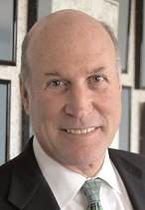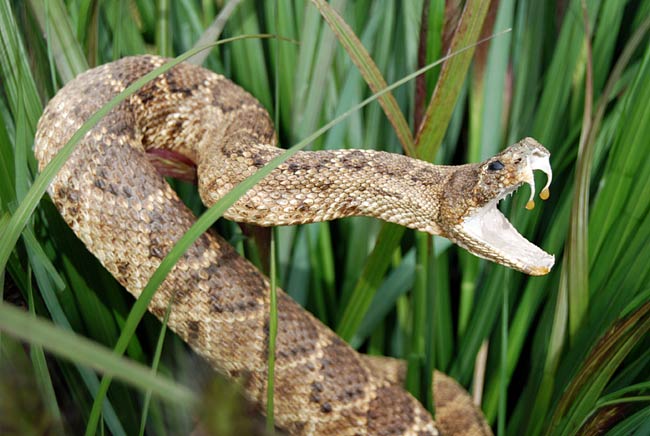Submitted by Anne Landman on
 A new investigative report published by the Humane Society of the United States examines the self-dealing activities of front group king Rick Berman, executive director of the Center for Consumer Freedom (CCF).
A new investigative report published by the Humane Society of the United States examines the self-dealing activities of front group king Rick Berman, executive director of the Center for Consumer Freedom (CCF).
Berman has developed a lucrative lobbying scheme that protects his corporate clients' anonymity while they attack the credibility of public interest groups and fight popular movements away from their products.
How it Works
Berman targets non-profit organizations with views that conflict with those of big business. The Humane Society of the United States (HSUS) is one example. It lobbies against animal cruelty, which puts it at odds with beef, pork and poultry producers, dairies, puppy mills, captive ("canned") hunting operations, and contract research labs that do animal experimentation for pharmaceutical and cosmetics manufacturers. Another favorite Berman target, Mothers Against Drunk Driving (MADD), lobbies for lower legal blood alcohol levels for drunk driving charges, and mandatory use of ignition interlock devices for convicted drunk drivers, which puts it at odds with alcoholic beverage manufacturers, whose business success depends on people drinking more.
To maintain their profit margins, big businesses need to stay in the public's good graces, so they can't be seen overtly fighting public interest legislation. The Tyson chicken company, for example, wouldn't win much public favor it if openly fought laws to require the humane treatment of chickens in factory poultry farms.
That's where Rick Berman comes in. Berman devised a system through which does the bidding of big businesses by attacking such threatening groups on their behalf, while keeping his corporate sponsors strictly anonymous.
Hide the Sponsors
Berman identifies issues that threaten well-established, big industries, like the organic foods movement, the obesity epidemic, public scorn for high fructose corn syrup, and mercury in fish. He then sets up a tax-exempt, charitable organization, appoints himself executive director and stocks its board with people linked to the companies he plans to defend. He solicits donations from the threatened industries, firms donate to Berman's charity, and Berman hires his own, for-profit PR company to do research, run advertising campaigns and set up Web sites attacking the groups that threaten the industries who fund him. His management fees run into the millions.
501 (c)(3) charities don't have to disclose their funders, so this charity-as-front group scheme allows Berman to keep his funders secret. This, in turn, insulates his client companies from public backlash. The names of corporations that fund Berman never appear on any of the attack ads or Web sites Berman produces -- just the name of Berman's charity. This anonymity is the key to Berman's business, and his success.
Berman-created charitable groups and Web sites include:
- The American Beverage Institute, whose main target is Mothers Against Drunk Driving, because it advocates lower blood-alcohol levels for drunk-driving arrests and the use of ignition interlock devices for convicted drunk drivers.
- The Employment Policies Institute, which aggressively opposes federal minimum wage increases and mandated health insurance plans.
- The Center for Union Facts which attacks labor unions and pro-labor legislation, including the Employee Free Choice Act.
- The Web site FishScam.com, which tries to counteract information about the high mercury content in fish (also MercuryFacts.org and HowMuchFish.com, which both encourage people to eat more fish).
In 2008, the Center for Consumer Freedom, Berman's main charity, took in $1.5 million in revenue, mostly from donations. Of that, Berman and his own for-profit PR firm, Berman & Co., pocketed $1.4 million.
The question is, is what he does legal?
IRS Complaint
In November, 2004, Melanie Sloan, executive director of the D.C. watchdog group, Citizens for Responsibility and Ethics in Washington filed an IRS complaint claiming Berman is illegally funneling millions of dollars from anonymous corporate donors through his "charity" and into his own coffers.
We cannot know whether the IRS acted on Sloan's complaint, because the agency does not disclose information about its investigations, but there is some indication it may have had an effect. In 2006, CCF's legal fees increased ten-fold over what they had been the previous year, and in 2007, the charity's tax returns showed five board members had been replaced. In her complaint, Sloan specifically questioned the ability of two CCF board members to make independent decisions because of their conflicting roles with Berman.
The fact that Berman hires himself to work for his charity also raises red flags, since it violates IRS rules about doing business at arm's length, as required by law.
Yet he is still in business.
So Who Funds Berman?
 Rarely, some information about his funders does slip out. In 2007, Berman gave a deposition in a federal lawsuit over ownership of a documentary film he financed. In the deposition, he revealed he had received donations from Hormel Foods, Standard Meat Company in Dallas, Texas and Covance Laboratories, one of the biggest animal testing labs in the world, which conducts research for the agrochemical, pharmaceutical, petrochemical and tobacco industries. The documentary film in question attacked People for the Ethical Treatment of Animals, which, like the Humane Society, fights animal cruelty.
Rarely, some information about his funders does slip out. In 2007, Berman gave a deposition in a federal lawsuit over ownership of a documentary film he financed. In the deposition, he revealed he had received donations from Hormel Foods, Standard Meat Company in Dallas, Texas and Covance Laboratories, one of the biggest animal testing labs in the world, which conducts research for the agrochemical, pharmaceutical, petrochemical and tobacco industries. The documentary film in question attacked People for the Ethical Treatment of Animals, which, like the Humane Society, fights animal cruelty.
Several years ago, a former Berman employee-turned-whistleblower contacted the Center for Media and Democracy and provided a list of 84 corporate donors to Berman's non-profit Center for Consumer Freedom. The list appears in SourceWatch's article about the Center for Consumer Freedom, at "7.2 Contributions." The list includes such notable companies as the Coca-Cola Company, Monsanto, Tyson Foods, Excel/Cargill. Wendy's International, Inc., Outback Steakhouse, Applebee's International, Good Humor/Breyer's Ice Cream, Ruth's Chris Steak House, Inc., Marie Callendar Pie Shops, Ruby Tuesday, Inc., PF Chang's China Bistro, Pilgrim's Pride Corp., and many other food manufacturers and restaurant companies. It lists the amounts they donated in 2001, and 2002, and in some cases, amounts they gave before 2001, but we don't have any more recent information than that. If you have any such information, please contact us, so we can include it on SourceWatch.
The Bottom Line
 The Supreme Court's ruling in the Citizen United case has unleashed corporations to spend unlimited amounts to influence elections. Even though they can spend freely, they still don't want to be seen doing it, nor do they want their attacks on popular causes to be visible. In the wake of the Citizens United decision, more corporations will likely be seeking ways to exert influence and attack public interest groups anonymously. The more people try to rein in bad corporate behavior or stop using unhealthy products, the more work Berman will have helping corporations fight these efforts and the more he will profit. Berman's strategy provides the perfect cover for corporations to carry out attacks while remaining unaccountable.
The Supreme Court's ruling in the Citizen United case has unleashed corporations to spend unlimited amounts to influence elections. Even though they can spend freely, they still don't want to be seen doing it, nor do they want their attacks on popular causes to be visible. In the wake of the Citizens United decision, more corporations will likely be seeking ways to exert influence and attack public interest groups anonymously. The more people try to rein in bad corporate behavior or stop using unhealthy products, the more work Berman will have helping corporations fight these efforts and the more he will profit. Berman's strategy provides the perfect cover for corporations to carry out attacks while remaining unaccountable.
In the absence of committed enforcement of IRS regulations governing charities, and without any new laws reining in clandestine corporate behavior, we may see even more operations like Berman's spring up to serve corporate interests. In the mean time, Berman seems to have found himself a tidy way to profit society's ever-deepening problems with runaway corporate power.

Comments
Anonymous replied on Permalink
A real service
Anne Landman replied on Permalink
Advancing laws protecting animals...
tamarque replied on Permalink
HSUS not a great protector
Anonymous replied on Permalink
What's funny about comments
Suasoria replied on Permalink
Apparently CCF has already found this article
electric fence dog replied on Permalink
Hey!
John Cho replied on Permalink
Was not aware that such a man existed
Maxine Walker replied on Permalink
Industry spin
Doug White replied on Permalink
Center for Consumer Freedom